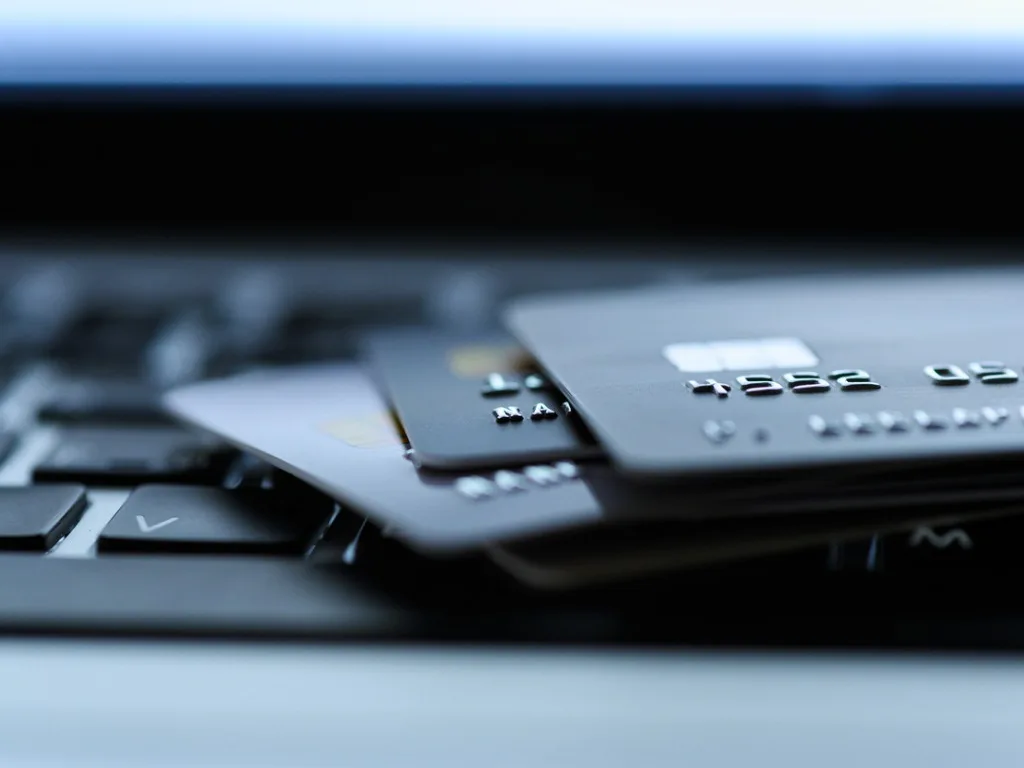In today’s digital age, ‘plastic money’ or credit cards are not just a convenience but a tool to enhance your financial freedom. With responsible use, these powerful pieces of plastic can provide a path to not only manage your finances better but also to leverage opportunities that were once out of reach. This guide will explore how making the most of credit cards can elevate your personal finance game.
The Evolution of Plastic Money: A Brief History
The inception of credit cards dates back to the early 20th century, marking a profound shift in how transactions were conducted. Initially conceived as exclusive tools for the wealthy, these so-called ‘charge cards’ were the precursors to the more egalitarian credit cards of today. By the 1950s, the concept of revolving credit was introduced, allowing users to carry forward balances and revolutionizing personal finance. The journey from there to the ubiquitous plastic money in our wallets today illuminates the evolution of spending, saving, and borrowing in modern society.
The spread of credit cards over the years has closely mirrored societal and technological advancements. As the global economy grew, so too did the reach of plastic money, making it an indispensible part of commerce and personal finance. The digitization of banking and the rise of online shopping have only further cemented the position of credit cards as a cornerstone of modern financial life. This widespread adoption speaks volumes about the trust and convenience associated with using credit cards, showcasing their journey from niche financial products to essential tools for millions.
Understanding the Basics: How Credit Cards Work
Credit cards, at their core, are tools for borrowing money. Each time you use a credit card, you’re essentially taking out a short-term loan for the amount of your purchase. The issuer of the card, typically a bank, fronts the money to the merchant, and you’re then obligated to pay back that amount. This basic premise underpins the entire credit system, but the real intricacy lies in the details: interest rates, payment terms, and credit limits all play pivotal roles in the dynamics of credit card use.
One key aspect that distinguishes credit cards from other forms of borrowing is the grace period. This is the window of time, often up to 25 days after the billing cycle ends, during which you can pay off your balance without incurring interest. This feature encourages responsible spending and timely repayment, making credit cards a more flexible option compared to loans without such leniencies. Understanding these fundamental mechanics is crucial for anyone looking to navigate the world of plastic money effectively.
The Financial Benefits of Using Credit Cards
Credit cards offer a myriad of financial benefits that extend well beyond mere convenience. Reward programs, for example, allow users to earn points, miles, or cash back on their purchases, converting everyday spending into tangible rewards. Additionally, many cards offer sign-up bonuses, providing an immediate influx of points or cash back after meeting a spending threshold. These incentives can add up to significant savings or travel opportunities over time, provided one manages their spending intelligently.
Beyond rewards, credit cards can serve as vital tools for budgeting and financial management. By consolidating expenses onto a single card, individuals can more easily track their spending patterns and adjust their budgets accordingly. Automated payment systems further ease the management of recurring monthly expenses, ensuring bills are paid on time and without penalty. When used thoughtfully, credit cards can thus play a key role in not just managing finances, but optimizing them.
Building and Managing Your Credit Score
An often-overlooked aspect of credit card use is its impact on one’s credit score. This three-digit number is a metric used by lenders to assess your creditworthiness, influencing everything from loan rates to housing applications. Responsible credit card usage — paying bills on time, maintaining low balances, and utilizing a small portion of your available credit — can significantly improve your credit score over time. Conversely, late payments and high credit utilization can damage it, underscoring the importance of careful card management.
Building a healthy credit score doesn’t happen overnight, but the effort is well worth it. A strong credit score opens doors to favorable borrowing terms and can result in substantial savings on interest over time. It reflects financial responsibility and can even affect job prospects in industries where creditworthiness is seen as indicative of reliability. For those just starting out, secured credit cards, which require a cash deposit that serves as your credit limit, can be a safe way to build credit while minimizing the risk of debt.
Maximizing Rewards and Perks Responsibly
The allure of credit card rewards can be strong, but maximizing these benefits without succumbing to overspending requires discipline and strategy. It starts with selecting the right card — one that offers rewards aligned with your spending habits and goals. Whether it’s travel rewards, cash back, or points redeemable for goods and services, choosing a card that fits your lifestyle can significantly enhance the value of your rewards. Furthermore, by paying off balances each month to avoid interest, the rewards earned can truly be seen as ‘free money,’ adding an extra layer of satisfaction to responsible credit card use.
Leveraging perks such as travel insurance, extended warranties, and purchase protections can also add considerable value, but it’s crucial to be aware of the terms and conditions. Being proactive, such as registering for bonus categories or taking advantage of promotional offers, can further amplify the benefits. However, the key to truly maximizing rewards is to maintain a budget and spend within your means. This balance ensures that the pursuit of rewards doesn’t lead to financial strain but rather contributes positively to your overall financial health.
Navigating the Pitfalls: Avoiding Debt and Misuse
While credit cards offer many advantages, the potential for debt and misuse cannot be ignored. High interest rates and penalties for late payments can quickly erode the benefits of any rewards earned, leading to a cycle of debt that’s hard to escape. Recognizing the warning signs of credit card debt, such as consistently carrying a balance or using credit to pay for essentials without a plan to repay, is the first step in avoiding these pitfalls.
Creating and adhering to a budget is essential for preventing credit card misuse. It’s also wise to use available tools and features offered by card issuers, like setting spending alerts or caps on purchases, to maintain control over your spending. In cases where debt has accumulated, exploring options such as balance transfers to cards with lower interest rates or consulting with a financial advisor can be effective strategies to regain financial stability. Remember, the goal is to use credit cards as a financial tool, not a crutch.
Choosing the Right Credit Card for You
With a plethora of credit cards on the market, each offering their unique blend of rewards, benefits, and terms, choosing the right one can feel overwhelming. Start by assessing your financial habits and goals. If you travel frequently, a card that offers travel rewards and no foreign transaction fees might be ideal. For those who prefer cash back, cards that offer higher rewards rates on everyday purchases such as groceries and gas may be more appealing.
Additionally, considering the fees and interest rates is crucial. Cards with annual fees may offer more lucrative rewards, but it’s important to ensure that the benefits outweigh the costs. For individuals new to credit or looking to build their credit scores, cards designed for building or repairing credit, often with lower limits and straightforward terms, can be particularly beneficial. Ultimately, the right credit card is one that complements your financial lifestyle and helps you achieve your financial goals.
Real-life Success Stories: Financial Freedom with Plastic Money
The power of plastic money to transform personal finances is illustrated in countless success stories. Take, for example, a young professional who leveraged credit card rewards to fund a dream vacation, or a family that used cash back from their everyday purchases to invest in a college savings plan. These stories highlight the potential of credit cards to not just facilitate spending, but to enable saving and investing toward future goals.
Another inspiring story comes from an individual who used a secured credit card to rebuild their credit from scratch, eventually qualifying for a mortgage at an excellent rate. These real-life examples demonstrate that, when used wisely, plastic money can be a powerful ally in achieving financial freedom and security. They serve as a reminder that with the right approach, the benefits of credit cards extend far beyond simple transactions, offering a pathway to achieving broader financial aspirations.
The Path to Financial Empowerment Through Credit Cards
Using credit cards wisely can undoubtedly elevate your financial freedom, offering benefits from enhanced security to rewards and building a healthy credit score. It’s about making informed decisions, understanding your spending, and choosing the right card that aligns with your financial goals. Remember, with great power comes great responsibility. Embrace the convenience and opportunities that plastic money offers, but always with a strategic approach towards achieving financial independence.
















